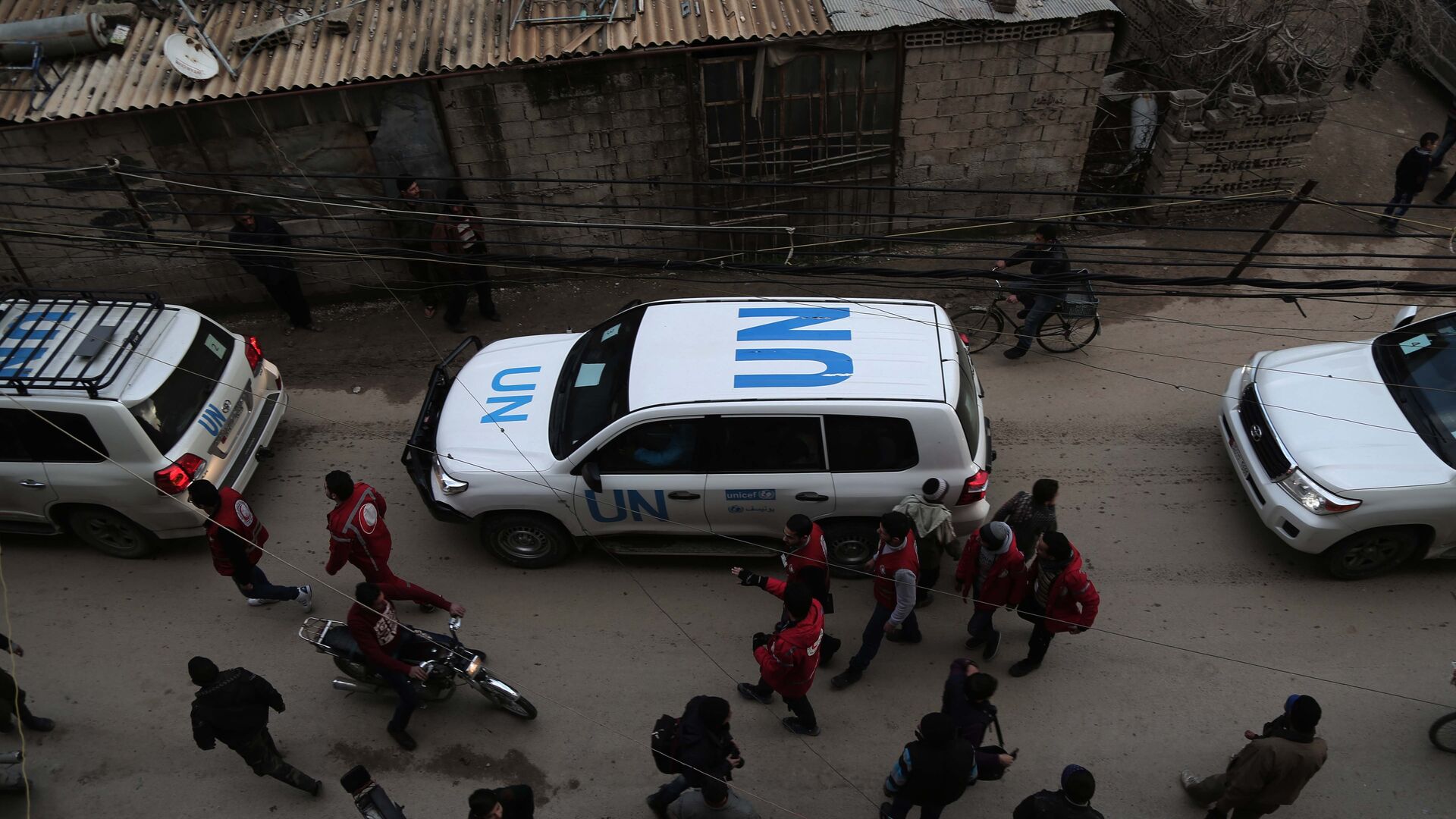UNSC Extends Syria Cross-Border Aid Mechanism Accommodating Russia Concerns
14:41 GMT 12.07.2022 (Updated: 16:47 GMT 08.01.2023)

© AFP 2023 / AMER ALMOHIBANY
Subscribe
UNITED NATIONS (Sputnik) - The UN Security Council on Tuesday extended the cross-border aid mechanism in Syria for six months in a compromise resolution that accommodated Russia's concerns.
Twelve member states voted in favor, with the US, the UK and France abstaining. The latter three nations wanted a resolution that provided for an automatic extension of the mechanism after the first six months.
"The world is not limited to the Western countries, or the so-called first golden billion as was imagined in Washington, London and Paris; and it's time for you to get used to respecting the interests of other states first and foremost, just such states who are impacted directly by the Security Council decisions," Russian deputy envoy to the UN Dmitry Polyanskiy said after the vote.
The aid mechanism can be extended for another six months if a separate resolution is approved. It also asks for a special report of the Secretary General on the issue.
US deputy envoy Richard Mills has accused Russia of taking the entire Security Council hostage.
China has said it is pleased with the results of the vote, noting that it shares Russia’s position on supporting the sovereignty of Syria.
"The resolution ... provides for the necessary flexibility to allow the council to assess and adjust its mandate in a timely manner. The resolution sets out clear demands for early recovery programs and greater transparency in relief efforts," Chinese Ambassador to the UN Zhang Jun said during the debate.
The resolution, produced by humanitarian penholders Norway and Ireland, largely mirrors Russia’s proposal, which had been previously voted down. Western countries wanted to automatically extend the mechanism for 12 months, but Russia made it clear that it could support only a six-month extension.
"We recognize that a six month renewal is shorter than we as pen holders aimed for when we started this negotiation," Irish Ambassador Geraldine Byrne Nason said before the vote on the resolution.
Russia wants the cross-border mechanism to be gradually substituted by a cross-line mechanism for aid delivery. Russia believes that only cross-line deliveries allow Syria to control its sovereign territory.
Russia is ready to consider the extension of cross-border aid mechanism for Syria in January if it sees genuine efforts from UN Security Council members to help the Arab republic, deputy Russian envoy to the UN Dmitry Polyansky said Tuesday.
"Depends on the collective work of the Council. We specifically made several safeguards this: IID [Informal Interactive Dialogue], Secretary-General Report. If there are genuine efforts to improve the humanitarian assistance to Syria, I don't think that anyone should worry about it," Polyansky said after the UNSC vote.
In addition, cross-border goes through the Bab al-Hawa border crossing from Turkey to Syria's Idlib, which harbors a lot of internationally acknowledged terrorists. There is no full transparency of what’s going through this territory and how the aid is delivered to those in need.
A similar situation in the UNSC happened in 2021 when the cross-border mechanism was extended for half a year with a possible extension. The agreement was the result of lengthy discussions between Russia and US negotiators.

